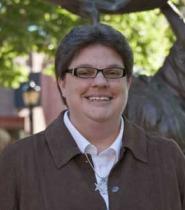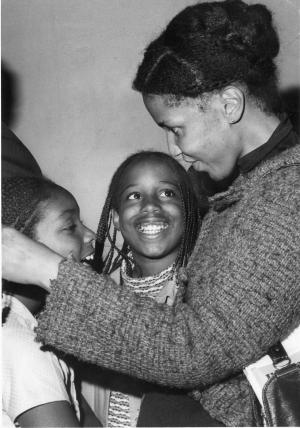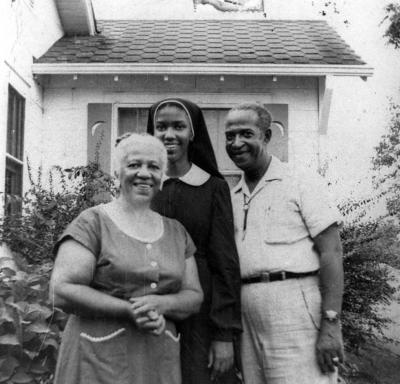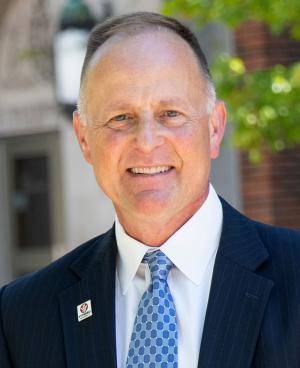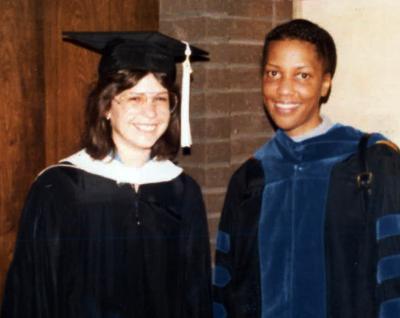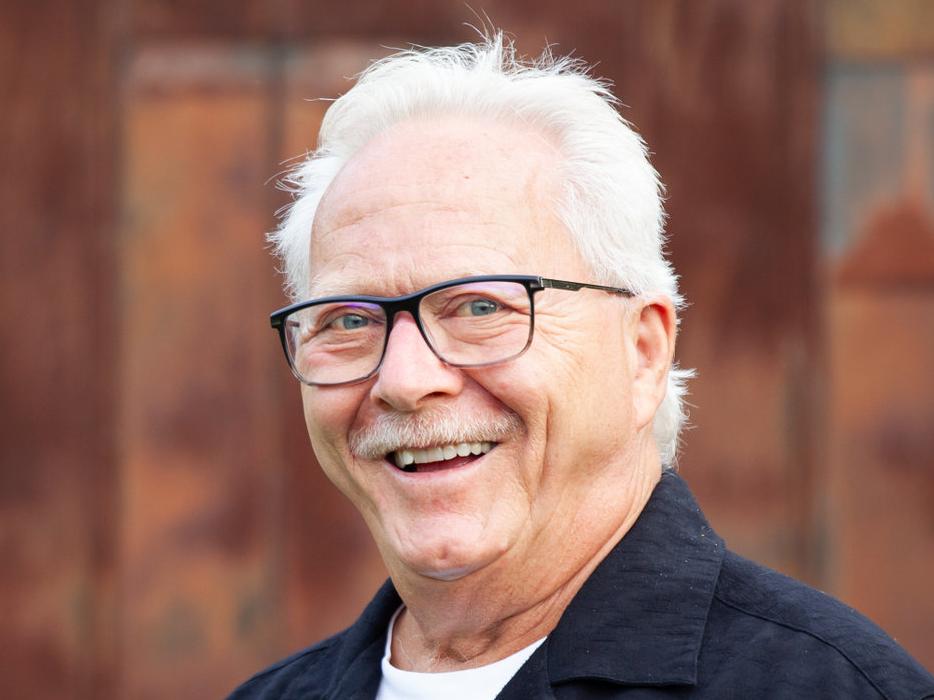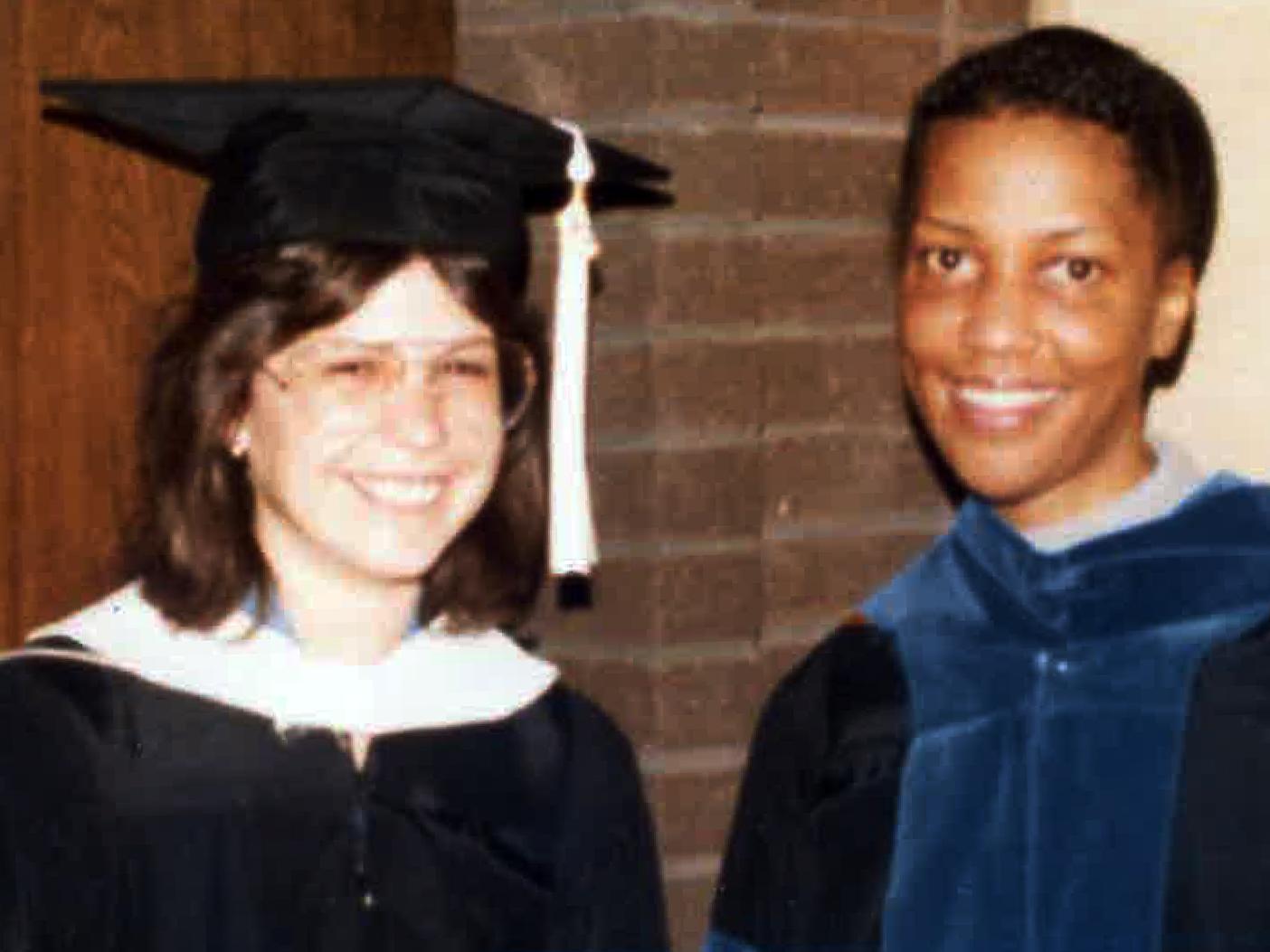
Growing up in Canton, Miss., young Bertha “Birdie” Bowman first encountered the Franciscan Sisters of Perpetual Adoration as a student at Holy Child Jesus School. She was mightily impressed with the example of her FSPA teachers, how they put their faith into action and cared for others, especially those in need. She was so taken that she convinced her Methodist parents to let her convert to Catholicism at the age of 9. By age 15, she had moved on her own to La Crosse to begin her journey to becoming the first Black member of the FSPA community.
When she professed her FSPA vows in 1963, young Bertha was given a new name: Mary Thea.
Everybody called her Sr. Thea.
Since her untimely death on March 30, 1990, at age 52, at least 16 institutions have taken the name of Sr. Thea, from schools and academies to spirituality centers. This spring, Viterbo University was added to the list of institutions honoring her with the creation of the Sr. Thea Bowman Center and the renaming of the campus ministry building in her honor.
At the core of the Sr. Thea Bowman Center is a commitment to carrying on Sr. Thea’s mission of promoting equity and social justice, as well as honoring her memory and ensuring that the campus and wider community knows who she was and how she came to be considered a candidate for sainthood.
The Sr. Thea Bowman Center’s emphasis on social justice is just the kind of example of putting faith into action that inspired Sr. Thea to start on her path, said Laura Nettles, FSPA, Viterbo’s executive director for mission and social justice and an assistant professor of religious studies.
“The way we honor her is not just by show and tell of her life but by engaging in social justice work,” said Sr. Laura. “It’s vital that we are engaged in the social justice work she was engaged in.”
Sr. Thea earned her bachelor’s degree in English from Viterbo in 1965, going on to earn a master’s degree and PhD, both from The Catholic University of America in Washington, D.C. She returned to Viterbo as an instructor from 1972–78, creating lasting memories for her students. Sr. Thea always managed to incorporate musical elements into the English classes she taught, and she made every effort to enlighten her students on the racism that persisted even after the civil rights movement of the 1960s.
Sr. Thea came to such national prominence in the 1980s that she merited a segment on 60 Minutes, during which she coaxed interviewer Mike Wallace to say, “Black is beautiful.” She also was a big hit in the last year of her life at a national conference of U.S. Catholic bishops, at which she convinced those in attendance to link arms and sing We Shall Overcome with her.
It might seem strange that so many other places across the country would name things in Sr. Thea’s honor before Viterbo, but Sr. Laura said it really isn’t, considering the nature of the school’s FSPA founders. The FSPA, she explained, is a community that eschews ostentation. The FSPA community will lift a member who has fallen but has been reluctant to raise up a member for adulation above everybody else.
In 2018, however, the Catholic Church lifted up Sr. Thea by designating her as Servant of God, the first of four steps toward sainthood. It’s recognition of her social justice advocacy and ministry, which she carried on even as the cancer that killed her sapped her strength.
“Sr. Thea was a unique woman who didn’t fit the mold. You rise to sainthood because you’re not in the norm,” said Sr. Laura, whose first published work in grad school addressed the question of whether Sr. Thea was worthy of canonization. “She has had a positive, enduring influence on our society. I’m fully supportive of her sainthood. She’s clearly a role model.”
Viterbo has honored and celebrated Sr. Thea many times since her death. During a discussion about the process of canonization for Sr. Thea, though, Viterbo’s then-President Glena Temple and James Salmo, vice president for institutional advancement, agreed that Sr. Thea merited a more permanent and prominent form of recognition at her alma mater. That was the spark that started the Sr. Thea Bowman Center.
After Temple resigned as president, Rick Trietley took over as interim president and demonstrated an enthusiastic commitment both to honoring Sr. Thea and dedicating Viterbo to the promotion of social justice. One of Trietley’s first significant actions as interim president was to announce the establishment of the Sr. Thea Bowman Center and the hiring of Marlene De La Cruz-Guzmán as Viterbo’s vice president for diversity, equity, and inclusion. She fills a newly created Cabinet-level position that will help place social justice considerations at the forefront of the institutional decision-making process.
Trietley, whose appointment as Viterbo’s 10th president was announced Feb. 10, sees great promise for the new Sr. Thea Bowman Center as an agent of change.
“The establishment of the Sr. Thea Bowman Center not only recognizes the amazing life and accomplishments of one of our most famous Viterbo graduates, but also demonstrates our ongoing commitment to social justice, diversity, equity, and inclusion,” Trietley said. “The Sr. Thea Bowman Center will provide educational opportunities and programming to future generations of Viterbo students and La Crosse community students. We are extremely grateful to the Franciscan Sisters of Perpetual Adoration and the numerous donors who helped make the center a reality.”
The Viterbo community recently celebrated the renaming of the campus ministry building, the launching of the Sr. Thea Bowman Center, and the life of Sr. Thea during a week (March 27–April 1) dedicated to her. The celebration kicked off Sunday, March 27, with a Celebration Mass and a concert featuring the Viterbo University Concert Choir, the 9th Street Singers, the Aquinas High School Choir, and former Viterbo music faculty members Aaron Matthews, who wrote liturgical music honoring Sr. Thea, and Daniel Johnson-Wilmot, a friend and colleague of Sr. Thea when she taught at Viterbo.
Matthews took part in a March 28 panel discussion honoring Sr. Thea’s artistry that was moderated by Greg Lind ’76, a member of the Viterbo Board of Trustees and the Sr. Thea Bowman Center Committee who had a life-changing experience taking part in one of the Sr. Thea-led student trips to Mississippi.
The panel also included Brother Mickey McGrath, a painter who has created many depictions of Sr. Thea, and Mary Verrill ’78, a student of Sr. Thea who recently wrote a young readers book about her life called Thea Bowman: A Story of Triumph.
On March 29, a panel of Sr. Thea’s friends shared memories of her, with panelists including Lind, Johnson-Wilmot, and Sr. Mary Ann Gschwind, a fellow FSPA member and 1965 Viterbo graduate who was Sr. Thea’s roommate.
The main event on March 30, the anniversary of Sr. Thea’s death, included a building dedication and a celebration event in the Fine Arts Center with music and keynote speaker Nola Jo Starling Ratliff ’74, who grew up in the same town as Sr. Thea and knew her before coming to Viterbo.
Going forward, Sr. Thea will be celebrated in some way every year on March 30, and additional campus events throughout the academic year will focus on Sr. Thea’s life and legacy.
The mission of the Sr. Thea Bowman Center is clear, but details on the tasks to accomplish it are still taking shape. Part of that work will focus on bringing greater diversity to the Viterbo campus and incorporating lessons about her life into the mission seminars that all students take.
Efforts are planned to share Sr. Thea’s story with students in the La Crosse area schools. The committee also is considering establishing an annual award bearing her name and creating opportunities for students to do research on social justice issues and take action to promote service focused on equity and social justice.
“I have long dreamed of having a social justice center at Viterbo, so this is really exciting,” said Sr. Laura. “This is our time to stand up and do something.”


